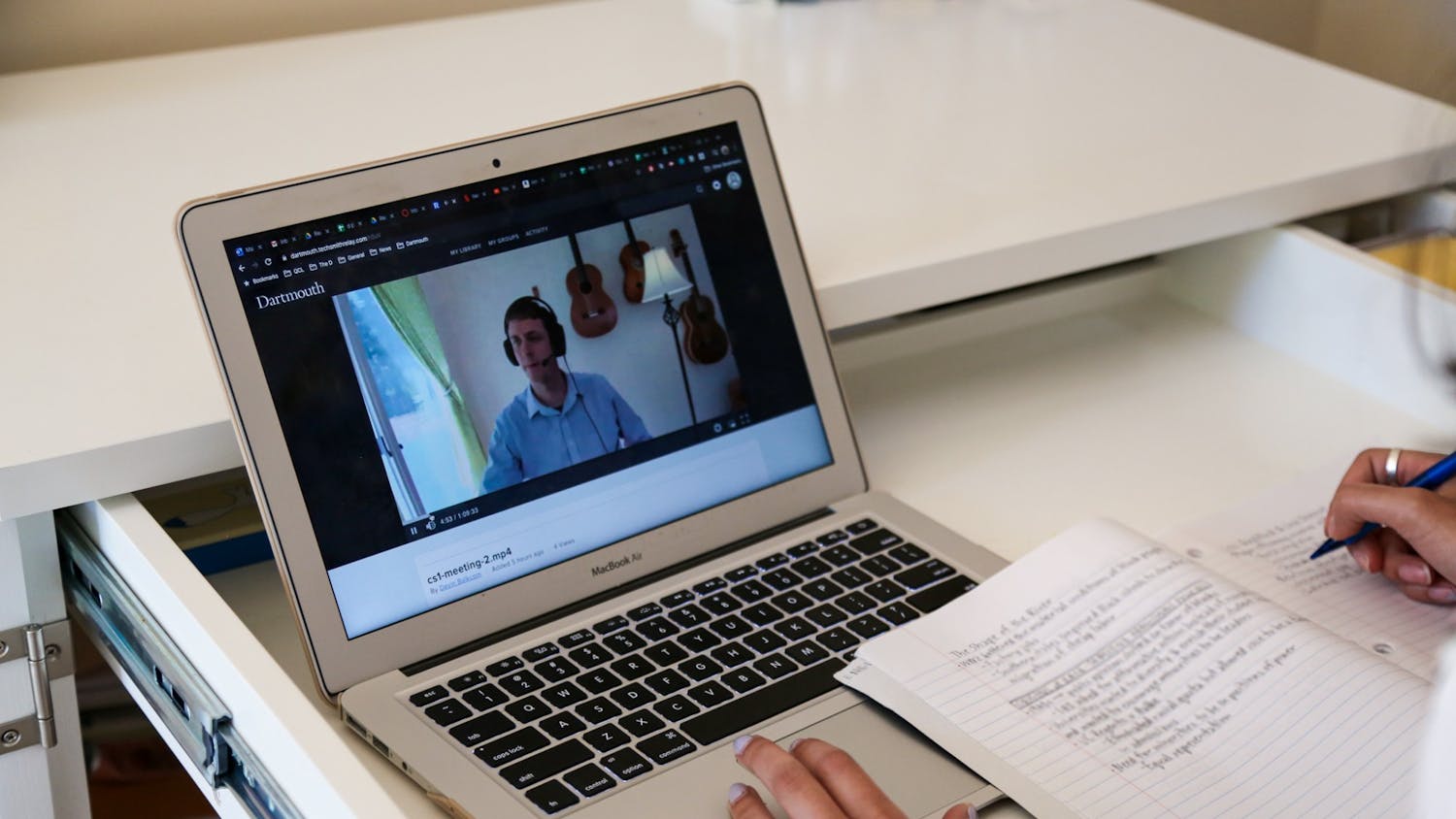Over six months have passed since Dartmouth shifted to Zoom world. The free and simple video-conferencing platform has been a lifesaver, used for class, meetings, video calls, events, interviews — just about every human interaction that once happened on campus. But as we become ever-more acquainted with Zoom, this new fixture of College life deserves closer scrutiny.
On Oct. 2, The Dartmouth published an article detailing the College’s access to, and interaction with, students’ Zoom data. James Goodrich, owner and administrator of Dartmouth’s Zoom account, noted in the article that Dartmouth administrators are able to view any Zoom recordings saved to the Dartmouth cloud. Dartmouth states that though it has access to the recordings, it generally chooses not to view them. While this retention of recordings is not necessarily surprising, it highlights a bigger question: What, exactly, does Zoom allow the College — or others — to see about students’ activities? Many students are beginning to question, in their third term of Zoom University, who is able to see their class participation, shared thoughts and personal data. Answers, unfortunately, have not been especially forthcoming.
Currently, Dartmouth’s Zoom policy is not very robust or easily accessible. The most in-depth information hub is found on the Dartmouth Services Portal, and it features a list of around 20 FAQs. One question of concern — regarding the length of time Zoom recordings stay available — was featured on this page. The answer, in essence, is Dartmouth’s Zoom retention policy. Zoom recordings are not deleted, but the host may elect to have a recording expire, and after 30 days the trash is completely emptied.
A relatively straightforward step that Dartmouth can take is to enact a policy for automatically deleting videos after a given time period, and to publicize that policy. ITC is, fortunately, currently drafting guidelines for how long recordings will be kept by the College. These guidelines must make clear to anyone making a Zoom recording and storing it to the cloud that the College will have access to that recording. These steps will establish a broader basis of trust and encourage students to remain involved and open in their class participation.
Dartmouth can also look to its peer universities for guidance on how to proceed. Each school has a slightly different approach, but almost all of them have what Dartmouth does not yet: A retention policy. At Harvard University, recordings are kept for the duration of the semester. If a recording is needed beyond the initial semester, the host is encouraged to download the recording onto another platform. Cornell University has a similar retention policy of 120 days on the “OnDemand” system.
For some Dartmouth students, ill-defined Zoom policies don’t just threaten privacy. They can threaten physical safety. There are growing concerns that the Chinese government is conducting Zoom data breaches and attempting to censor Chinese nationals who study in the United States. If the Chinese government is able to secure Zoom evidence of a student saying something that does not align with the official government line, the safety of Dartmouth students or their families could be put in jeopardy. Even the mere threat of censorship may already be limiting what students are willing to say on Zoom. If a policy of deleting Zoom recordings helps alleviate this threat, then it should be implemented, and implemented quickly.
The editorial board consists of opinion staff columnists, the opinion editors, the executive editors and the editor-in-chief.



